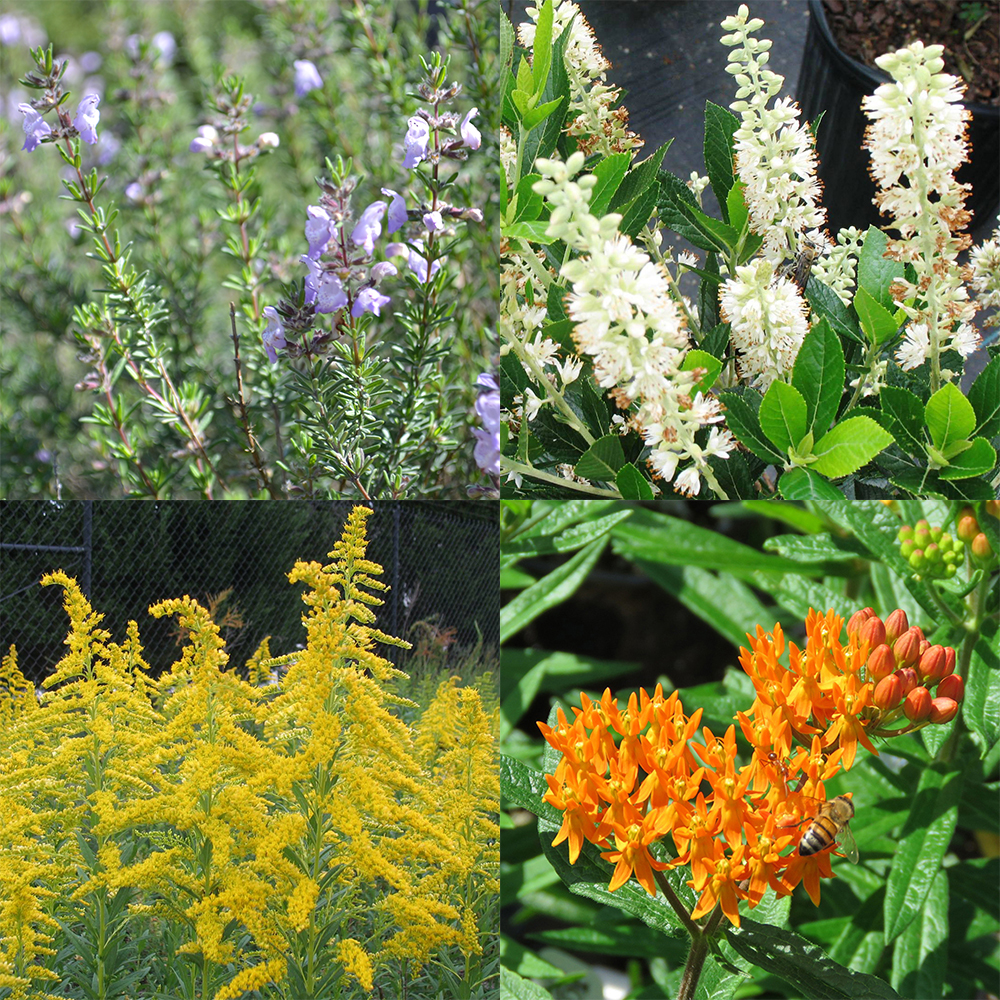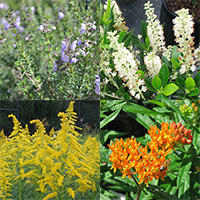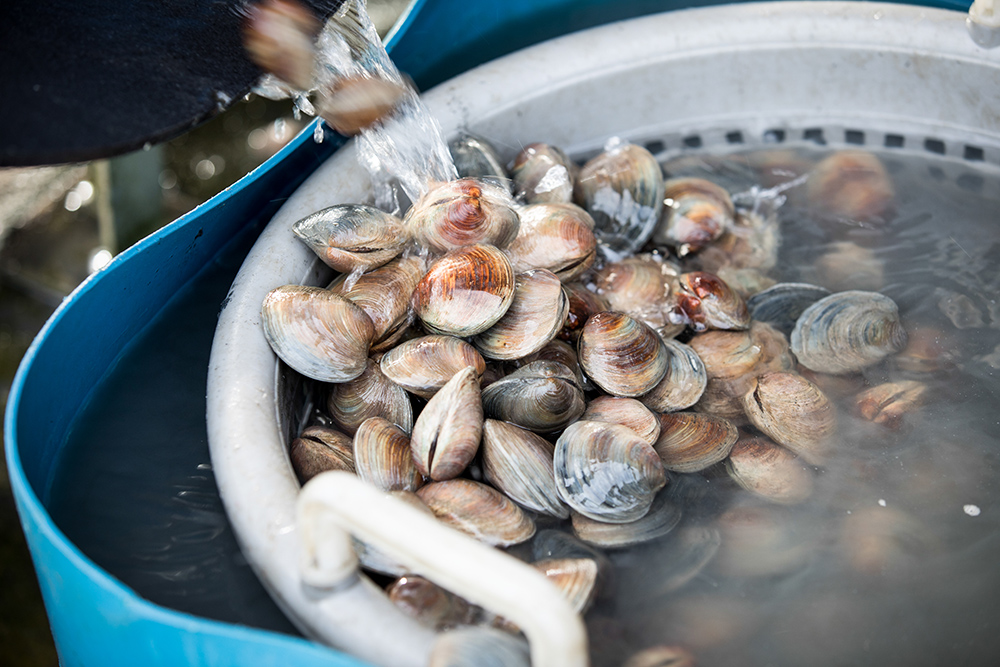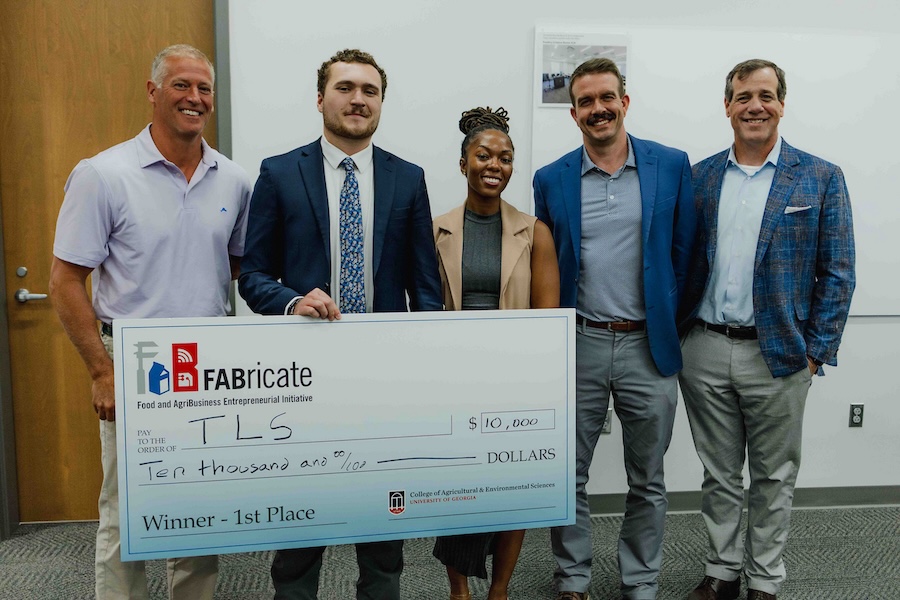As part of an ongoing effort to help support Georgians use more native plants in their landscapes, University of Georgia Cooperative Extension has partnered with the State Botanical Garden at the University of Georgia, the Georgia Green Industry Association and the Georgia Department of Agriculture to launch the state’s first Pollinator Plants of the Year Program.
“We are excited to be part of the effort to get this amazing program in place for Georgia gardeners,” said Becky Griffin, UGA Extension school and community garden coordinator and pollinator protection expert. “Extension has strengths. The State Botanical Garden of Georgia has strengths; the Department of Agriculture has strengths and the private sector has its strengths. We have a better chance of meeting our goal of providing more pollinator habitat if we work together.”
The collaboration will connect Georgia’s robust greenhouse industry with experts in native plant cultivation and pollinator health to produce more ready-to-plant natives and to encourage Georgians to turn part of their home landscape into pollinator habitat. This year the groups will be reaching out to greenhouse growers to encourage them to produce specially selected landscape plants. Next year the focus will be on teaching gardeners how to incorporate and maintain the pollinator-friendly plants.
The State Botanical Garden at the University of Georgia announced its first Georgia Pollinator Plants of the Year at the Georgia Green Industry Association Wintergreen conference to encourage green industry professionals to suggest that businesses, parks, schools, city and county governments, and home gardeners add pollinator-friendly native plants to their landscapes.
The plants were selected by a committee made up of horticulturists, ecologists, entomologists and industry professionals. Each plant had to be aesthetically pleasing, marketable and, most importantly, provide shelter and food for a number of native Georgia pollinators.
“This program brings together conservation and horticulture, which don’t function independently—one supports the other,” said Lauren Muller, conservation outreach coordinator at the State Botanical Garden and coordinator of the Georgia Pollinator Plants of the Year program. “It is important for people in the green industry to think about conservation, the work we are doing and how we can tie it back into the larger ecological system.”
The 2021 Pollinator Plants of the Year are:
- Spring bloomer — Conradina (Conradina canescens), also known as wild rosemary, is a fine-textured, evergreen, woody shrub in the mint family with aromatic, needle-like leaves. In spring, the plant is covered in small lavender flowers with purple-spotted throats. It supports many native bees and other pollinators and is ideal for container gardening or garden walls.
- Summer bloomer — Sweet Pepperbush (Clethra alnifolia) is a small, deciduous, densely branched shrub ideal for rain gardens. Panicles of white flowers give off an intoxicating fragrance in the heat of summer and support many native bees.
- Fall bloomer — Downy Goldenrod (Solidago petiolaris) — not to be confused with ragweed, the true culprit in many allergies — is one of the shorter goldenrods, standing between one and three feet tall. From August to October, the flowers bloom in dense, spiky clusters, creating a gorgeous yellow plume. This is an excellent plant for bees, wasps and at least 112 species of butterflies and moths.
- Georgia native — Butterfly Weed (Asclepias tuberosa) is a drought-tolerant, herbaceous perennial wildflower that reaches one to two feet tall and is excellent for sunny borders, meadows and containers. This plant serves as the larval host for the Monarch Butterfly, Grey Hairstreak, Queen Butterfly and Milkweed Tussock Moth and provides abundant nectar for many insects and hummingbirds.
These plants should be available in Georgia garden centers in late 2020 and early 2021.
“This is great because, as an agent, it’s discouraging when you get a call from someone asking where they can find these (native) plants and we have to say, ‘Good luck! You can start them from seed if you want,” said Ashley Hoppers, UGA Cooperative Extension agricultural and natural resources agent for Fannin County. “It really stifles their desire to plant natives because it’s hard. If (home gardeners) can’t go to a local outlet and find that (plant) they’re looking for, it creates a negative feedback loop.”
The partnership behind the Pollinator Plants for the Year is part of a large scale partnership between State Botanical Garden and UGA Extension. Pollinator protection experts with Extension have merged their Pollinator Spaces project with the garden’s Connect to Protect pollinator protection efforts. The program will continue under Connect to Protect and help build a stronger pollinator protection movement across the state, Griffin said.
The Georgia Department of Agriculture Georgia Grown’s Pollen Nation program will also join that effort. The program’s goal is to encourage the creation of pollinator gardens and the propagation of native plants, and to help support the green industry through increased plant sales of pollinator-friendly species, said Matthew Kulinski, deputy director of marketing at the Georgia Department of Agriculture.
Pollen Nation will provide green industry professionals with marketing and educational materials and consumers a website with tips on the best pollinators for their landscapes, including the Georgia Pollinator Plants of the Year. That program will launch in March.
Programs and partnerships like the Georgia Pollinator Plants of the Year program and Pollen Nation not only benefit members of the green industry, but also consumers and the environment, according to Jeremy Oxford, chairman of the Georgia Green Industry Association, which hosts the Wintergreen conference.
“Connecting the dots between the environmental benefits of pollinator plants and Georgia’s nursery industry creates a win-win relationship,” Oxford said. “The Georgia Grown program and pollinator awards highlight the best of these plants so that growers can make them easily available to the consumer. “
For information on acquiring Georgia Pollinator Plants of the Year or Connect to Protect visit botgarden.uga.edu/conservation-science/connect-to-protect.
For information on how UGA Extension can help families, businesses and schools create more pollinator-friend landscapes visit extension.uga.edu/topic-areas/timely-topics/pollinators.html.








